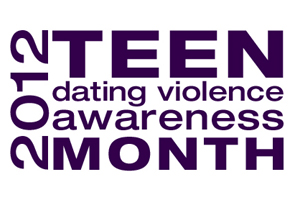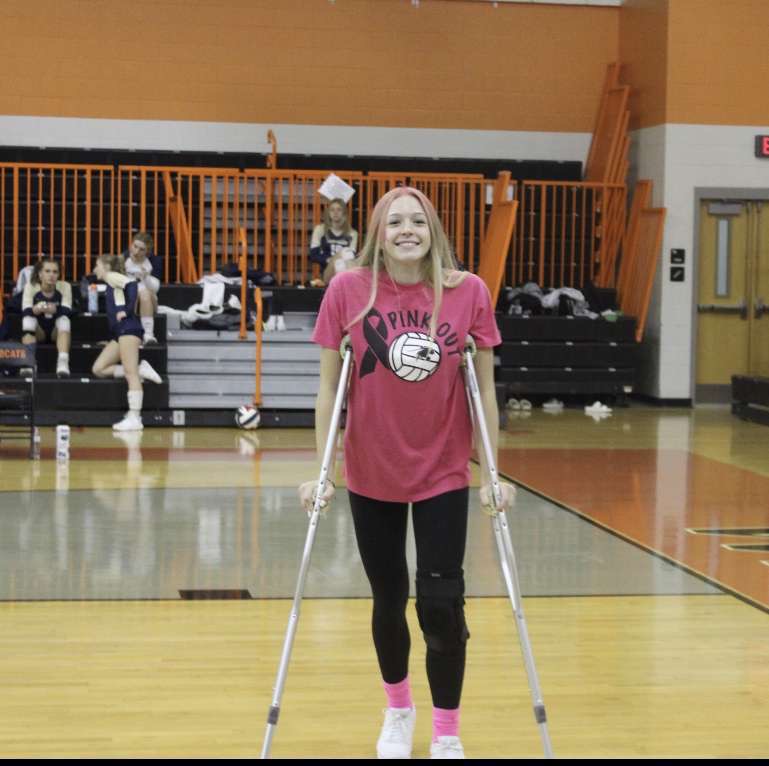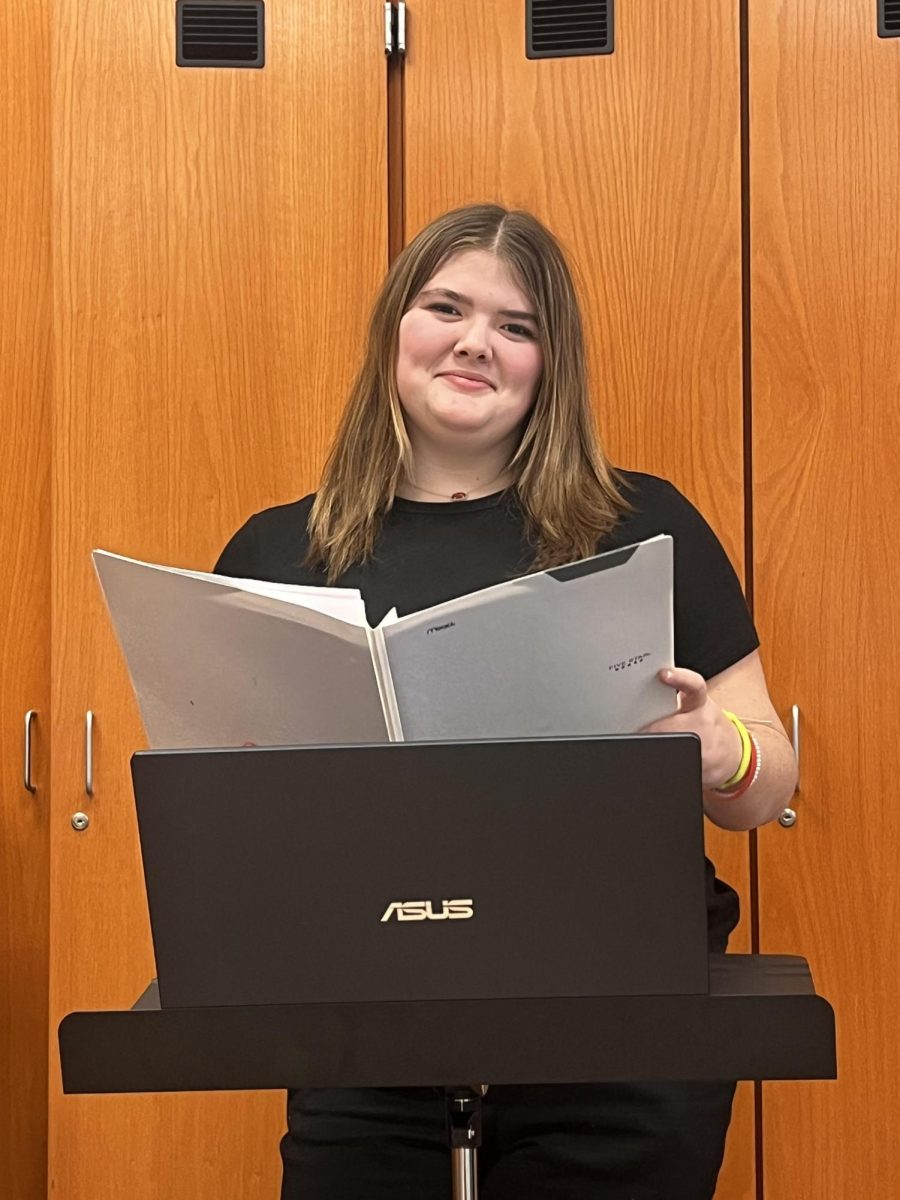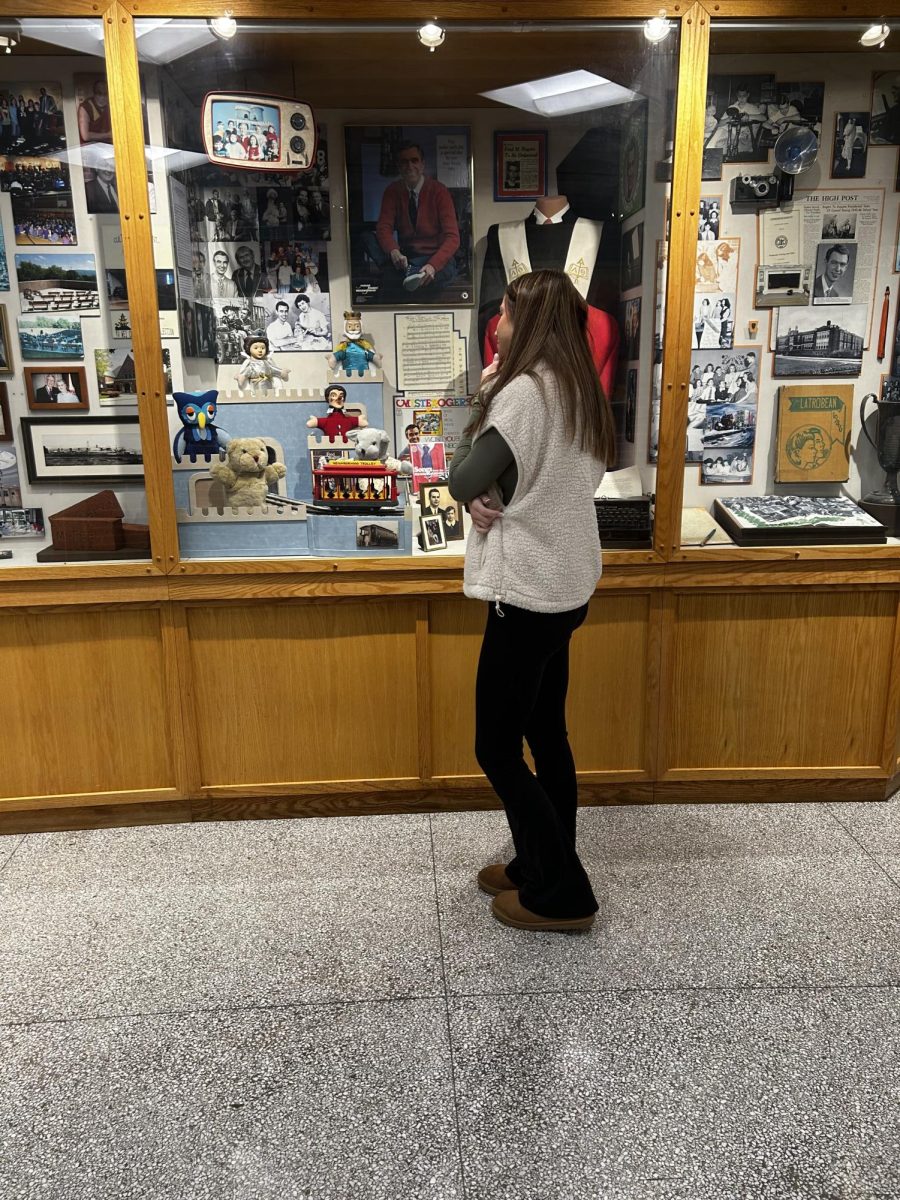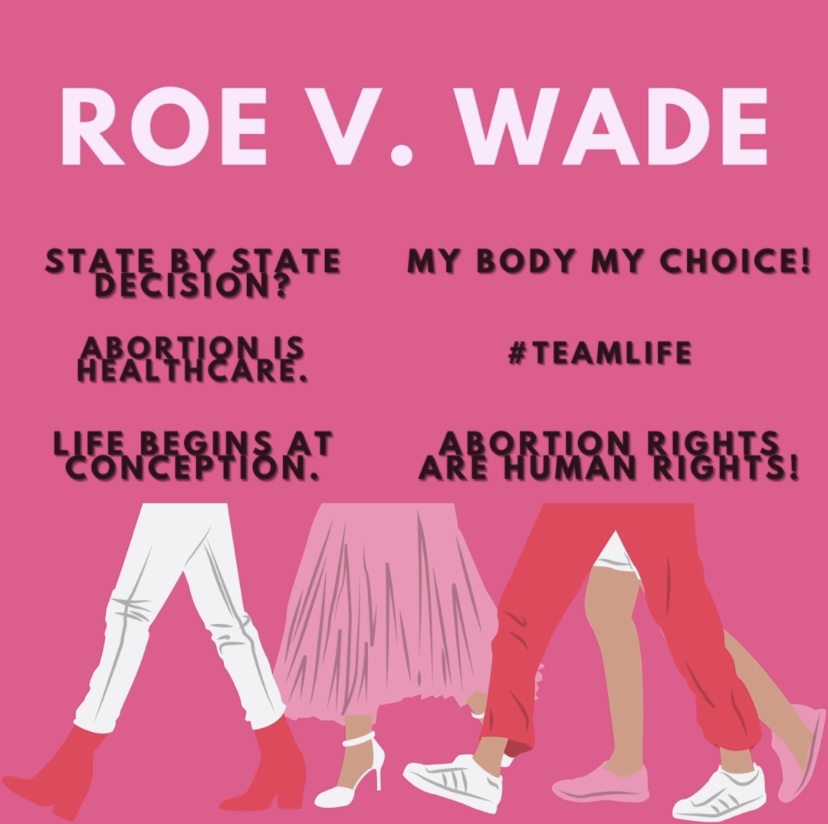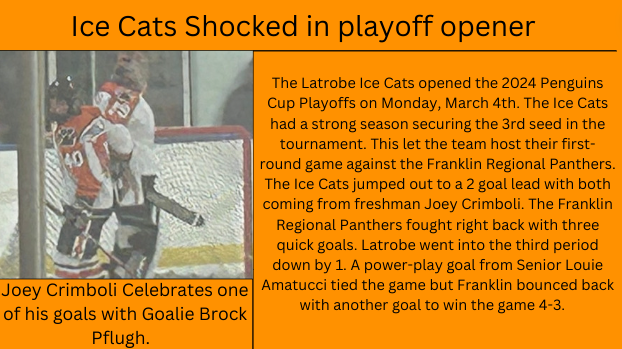For two years I was in an abusive relationship. My boyfriend abused me both verbally and physically. He would threaten to break up with me all the time. I was always scared, my friends started to notice that I was quiet and closed off from everyone. He would follow me in school to see what I was doing and who I was talking to. I lived in constant fear that that he would see me talking to another guy, even in the most casual way, and he would freak out about it. The more control he thought he had the worse the abuse got.- Jane, a Greater Latrobe High School student whose name has been changed for her protection.
Unfortunately, situations like Jane’s seem to be occurring at an alarming rate in high schools across the country. One in three teens have reported experiencing some kind of abuse in a romantic relationship (Demibrae.com). This number could even be higher because of the cases that are unreported. What teens don’t realize is that dating abuse is not just physical, it can be emotional, verbal and sexual as well. Today’s youth must take initiative to break the cycle and eliminate dating abuse in our society. Knowing how to spot an abusive relationship of any kind can help stop the abuse before it turns deadly.
The forms of dating abuse:
Dating abuse comes in many forms, those both face to face and with the ever developing technology. One in three teens say they are text messaged 10, 20 or 30 times an hour by a partner keeping tabs on them. (Demibrae.com) Threatening messages are one form of texting abuse, but ones like in the example below are another form, no one should have to check-in with their partner, ecspecially in high school. When the threats don’t end even after a relationship is over, it shouldn’t be hidden.
According to The National Intimate Partner and Sexual Violence Survey (NISVS), one in six women claimed to have experienced stalking, which made them fearful and believed that they or someone close to them would be harmed. Of those women, two-thirds of them said they were stalked by a current or former intimate partner. Unwanted phone calls or text messages was the most common method used by stalkers.
After we broke up he started lying to his friends about intimate things we did while we were dating. He even sent a picture around that I sent to him a while back, that picture was meant for him only. Now he texts me all the time about how I’m nothing but trash and he openly talks about me on Facebook and Twitter.- Jane
The internet is a common battle field for arguments between teens and when a relationship ends disagreements often go viral. Two in five teens report having watched someone be put down in a relationship via text message, or social networking site such as Myspace, Twitter or Facebook (loveisnotabuse.com). By a simple click of a button, a personal picture can go viral, ruining someone’s reputation for life.
We used to be really good friends, but now that she’s dating him we can’t even talk without hiding it. She has to delete all of our conversations from her phone just in case he sees them and when I saw her out to eat last week, she didn’t say hi because he “gets really jealous when I talk to other guys.”She was my friend before, I don’t understand why that has to change. – Jane’s friend
Abuse isn’t always aimed at a partner, sometimes it is isolating someone from the people they care the most about. Twenty-five percent of abuse victims say they have been isolated from friends or family. We can still be friends, he just can’t know. Relationships aren’t about soley one person. In highschool partners should not have control over the people their partner can interact with in their lives. If the relationship is open and truthful restrictions aren’t necessary.
Getting out:
Getting out of abusive relationships may be as difficult as being in them, the awareness can not end just because the relationship does. Demi Cuccia, a 16 year old Gateway High School student, was brutally murdered by her ex-boyfriend, then 18 year old, John Mullarkey, two weeks after she ended their two year realationship. Those closest to Demi recall a controlling Mullarkey throughout their time together.
Ignoring the signs of dating abuse can be deadly. Falling grades, low self-esteem, changes in mood and personality, depression, signs of physical injury and emotional outburst can all be signs that someone is in an abusive relationship. The best way to stop relationship abuse is to recognize the signs and take action if abuse is suspected.
Friends told the Tribune Review days after Demi was murdered that “They knew it was going to happen and that everyone tried to tell her.” If a friend says something to you about your relationship, listen, don’t ignore it because “love is blind,” as some say, and it may be too late once you realize what they said was true.
Demi’s parents have made it their mission to educate today’s youth so that this doesn’t happen again. “I was never suspicious of John, he was a good friend of Demi’s brother so he was always around,” said Gary Cuccia, Demi’s father. “In hindsight, John was very controlling, he was constantly checking up on Demi, texting her all the time, she stopped hanging out as much with her girlfriends and at one point he wanted her to quit cheering.” All of the signs of dating abuse were present in Demi’s relationship but her family was unaware.
In July, the Pennsylvania Department of Education released guidelines of education violence for schools. The Demi Brae Cuccia bill was passed by the House and is in committee in the Senate. These guidelines are meant to educate students, parents and teachers on how to recognize the signs of dating violence and how to respond if it does occur. On May 10, 2010, Greater Latrobe passed a resolution supporting the bill to help educate their students of the realities of dating violence.
Demi’s parents travel around to schools in Pennsyvlania to educate today’s youth about the signs of dating abuse. “Demi was caring and loving, she would want us educating the youth and prvent something like this from happening to some other girl. People come up to me after I speak and tell me how good it was, but she’s with me when I speak, it’s her speaking not me” said Cuccia.
Speaking out:
As I look back on the time I spent in an abusive relationship, I realize that putting up with it only made it worse. The more control I gave him the worse the abuse got. It never got better until I spoke up and got out of it.- Jane
Only 33% of teens who have been in or know about an abusive relationship report having told anyone about it. This silence must stop. Ignoring the small signs of dating abuse will not make it go away, dating violence only gets worse as time goes along. The more control he thought he had, the worse the abuse got.
In the end, the only way to end teen violence is to be educated and to speak out. If you are feeling pressure, constricted or violated there is no reason why you have to put up with it. If you feel you are in danger or someone you know is feeling this way, talk to an adult. Speak out to end the violence.


